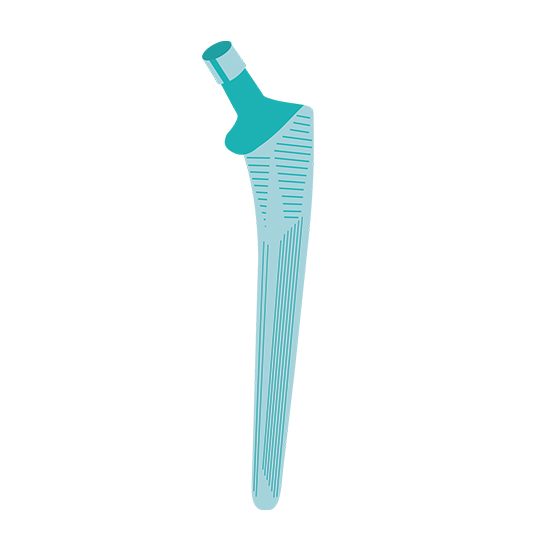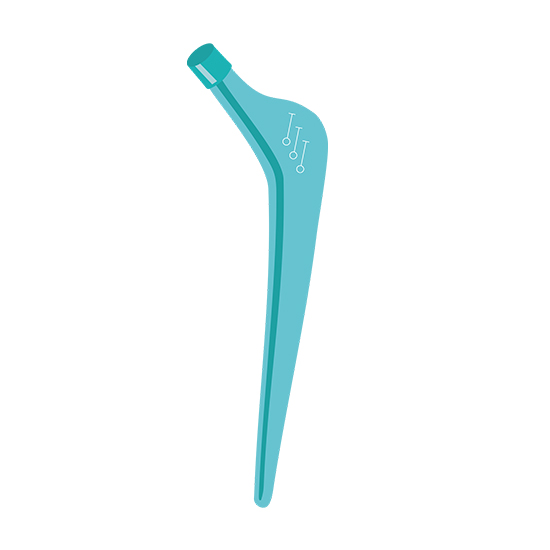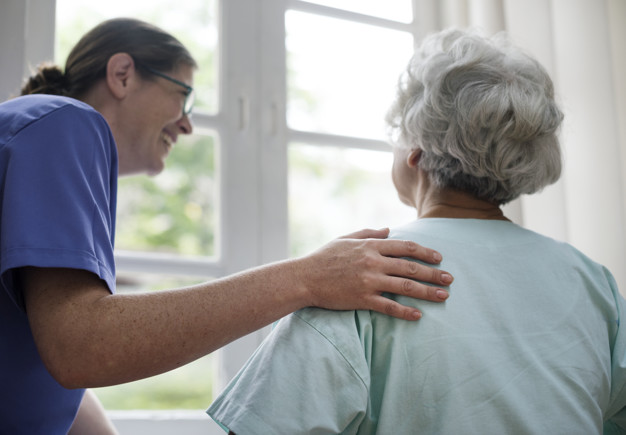EΜ., 84, lives independently in her home in Peterlee, County Durham – and is frequently visited by her four children, and eight grandchildren. A keen dancer, Ethel was a weekly attendee at her local ballroom dancing events, and it was here that Ethel first began noticing problems with her hips. Whilst initially there was no pain, friends began to notice that she walked with a limp and her back was more hunched than before. Eventually, she was forced to abandon her dancing after her hips – notably her left hip – began to cause her pain, and limit her mobility.
As time passed on, Ethel’s life began to be controlled by her hip issues. Simple tasks that the rest of us take for granted became a huge chore for her; collecting groceries, or walking to her local clubs was a real challenge. A visit to the orthopaedics team at North Tees and Hartlepool NHS Foundation Trust uncovered that Ethel’s hips were ravaged by osteoarthritis – with her less painful right hip being more affected than the left, which was attributed to her over-compensating for less mobility in the right hip. The only option for Ethel was total hip replacement surgery. Despite a successful and complication-free procedure on her right hip, Ethel’s rehabilitation following the surgery was a long and arduous process. Her left hip continued to become more and more painful, and the orthopaedic surgeon confirmed that another operation was required.
The operation would take place at the University Hospital of North Tees on November 29th, 2014. The hip implant that Ethel received was an optimised equivalent, the world’s first generic hip implant. The optimised equivalent has the same design, materials and manufacturing process as branded products – whilst offering the same clinical outcomes.
Ethel’s new implant would give her everything that any other hip implant would, but cost the NHS less money.
After the second operation, Ethel was well enough to walk out of the hospital (with walking-aids) just two days after the operation. The speed of her recovery was equally as quick, with Ethel being impressed with the fact that she felt less discomfort with the Orthimo implant compared to her first operation. Ethel’s mobility following the second operation was so quick that she was able to return to normal life just three weeks after her operation – walking just under a mile with walking sticks to join up with her friends at their weekly club’s Christmas dinner. Shortly after, the orthopaedic team at North Tees confirmed the operation to be a complete success.
Ethel’s life was back to normal. She was back doing her usual routine – attending her weekly clubs and exercise classes and being comfortable and mobile. Ethel had been worried that she would never be able to dance or live a normal life again: her optimised equivalent hip has made it possible.







